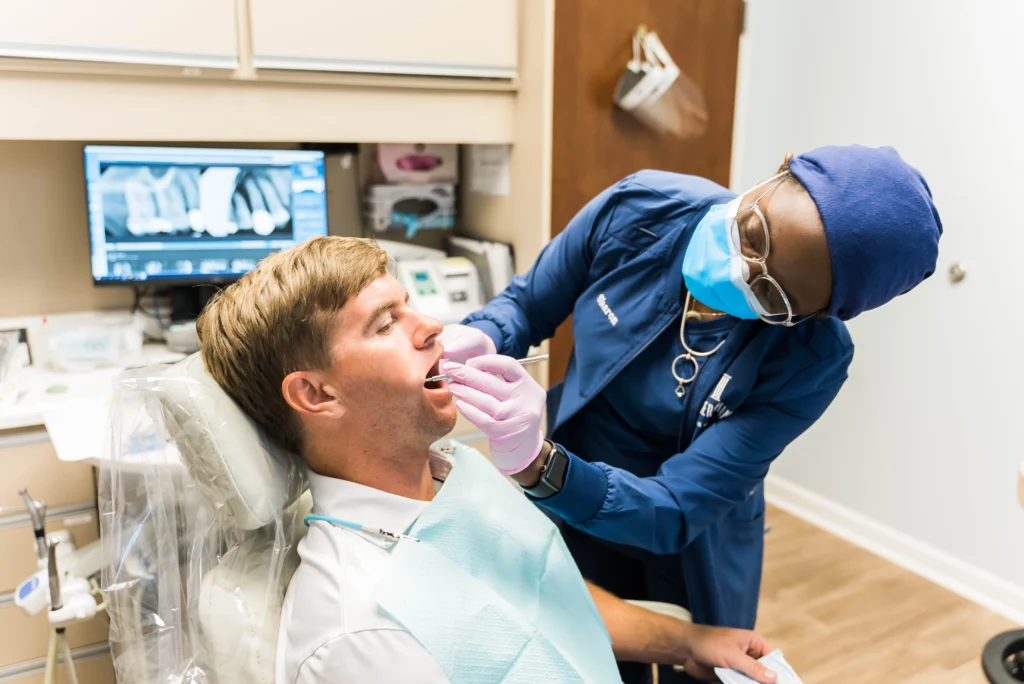When most people think of dentistry, they picture cleanings, cavities, and braces—a world primarily concerned with the appearance and functionality of teeth. But the truth is, dentistry is far more integral to your overall health than it might seem. The mouth is the gateway to the body, and maintaining good oral health is not just about avoiding toothaches—it’s about safeguarding your systemic health as well. This article explores the deep connections between oral health and general well-being, the risks of neglecting dental care, and the evolving role of dentistry in holistic healthcare.
1. The Mouth-Body Connection: An Overview
The mouth is a critical diagnostic window into your body’s overall health. It houses millions of bacteria—most of them harmless—but without proper oral hygiene, harmful bacteria can grow unchecked, leading not only to dental diseases but also to systemic conditions.
The bloodstream provides a direct route for oral bacteria to travel to other parts of the body, meaning that infections in the mouth can affect vital organs. This connection is now well-established in scientific literature and has reshaped the way health professionals view dental care.
2. Dental Health and Chronic Diseases
Cardiovascular Disease
Studies have shown a strong association between periodontal (gum) disease and cardiovascular conditions such as heart attack and stroke. The inflammation caused by gum disease may contribute to the buildup of arterial plaque, increasing the risk of clogged arteries.
Diabetes
Diabetes and periodontal disease have a bidirectional relationship. Uncontrolled diabetes can exacerbate gum disease, and severe gum disease can make it more difficult to manage blood sugar levels. Dentists often play a key role in spotting early signs of diabetes due to oral symptoms.
Respiratory Infections
Bacteria from infected teeth and gums can be inhaled into the lungs or travel through the bloodstream, contributing to respiratory conditions such as pneumonia, especially in older adults.
Pregnancy Complications
Poor oral health has been linked to premature birth and low birth weight. Pregnant women with gum disease may have higher levels of inflammatory markers, which can induce labor earlier than expected.
3. Oral Health and Mental Well-being
There is a profound psychological component to dental health. Issues like missing teeth, chronic bad breath, or visible decay can lead to low self-esteem, social anxiety, and depression. Conversely, maintaining a clean, healthy smile can boost confidence and improve quality of life.
Furthermore, individuals with certain mental health conditions—such as anxiety, depression, or eating disorders—often neglect oral hygiene, creating a dangerous cycle that affects both mental and dental health.
4. The Dentist as a Frontline Health Provider
Dentists are often the first health professionals to detect signs of systemic diseases. During routine exams, they might notice indicators of:
-
Anemia (pale oral tissues)
-
HIV/AIDS (oral lesions and fungal infections)
-
Osteoporosis (bone loss visible on dental x-rays)
-
Gastroesophageal Reflux Disease (GERD) (enamel erosion)
Because patients tend to visit their dentist more regularly than their general physician, dentists are in a prime position to catch health issues early.
5. Preventive Dentistry as Preventive Medicine
Preventive dentistry focuses on practices that prevent the onset or progression of oral diseases. These include:
-
Regular dental cleanings and checkups
-
Fluoride treatments and sealants
-
Patient education on proper brushing and flossing
-
Nutritional counseling to support oral and general health
When implemented effectively, preventive dentistry significantly reduces the burden of disease—both dental and systemic—saving patients from costly and complex treatments down the line.
6. Dentistry and Aging
As we age, maintaining oral health becomes even more critical. Older adults often face challenges such as dry mouth (often due to medications), gum recession, and difficulty cleaning their teeth due to arthritis or cognitive impairments.
Poor oral health in seniors can lead to malnutrition, social isolation, and worsening of existing chronic conditions. Integrating dental care into geriatric health planning is essential for aging with dignity and health.
7. Integrative Healthcare: Bridging Medical and Dental Fields
Traditionally, dentistry and general medicine have existed in separate spheres. However, the emerging model of integrative healthcare encourages collaboration between dentists, physicians, nutritionists, and mental health professionals.
For example:
-
A physician treating a diabetic patient might coordinate with a dentist to manage periodontal health.
-
A psychiatrist might refer a patient with an eating disorder to a dentist for oral damage assessment.
-
Pediatricians and dentists may collaborate on early childhood oral health education.
This holistic approach recognizes that oral health is not a luxury—it is a fundamental component of whole-body wellness.
Conclusion: Rethinking the Role of Dentistry
Dentistry is no longer just about teeth. It’s about inflammation, immunity, infection control, nutrition, mental health, and chronic disease management. Your oral health reflects and influences your systemic health in myriad ways, making regular dental care an essential component of overall wellness.
So, the next time you think about skipping that dental check-up, remember: your mouth is not separate from your body. It’s the starting point of your health journey.
(718) 622-7275












































